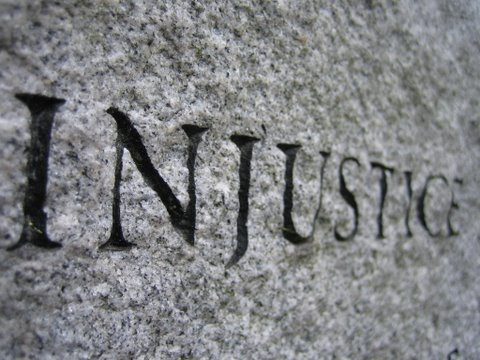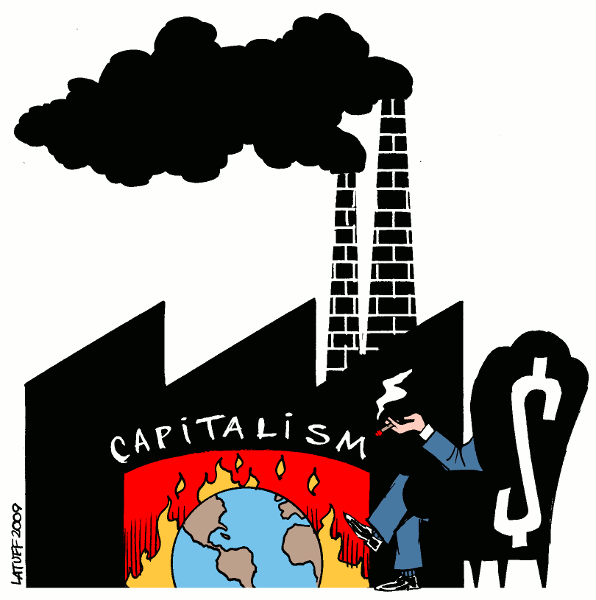It is theoretical weekends here at Scission. I won't take up your time today with my blabbering. I will just present to you the post below which I borrow from The South African Civil Society Information Service. Trust me, this one is not too long and too the point.
The Enduring Rationality of Revolt
by Richard Pithouse
In recent weeks the centre of the unstable and diverse social ferment that has been bubbling and boiling at the base of South African society since at least 2004 has shifted to Cape Town. People have often remarked that the conflict on the slopes of the Sentinel in Hout Bay, in which four people lost their eyes to rubber bullets fired by the police, has evoked the past.
But our cities are the most unequal in the world and many of our people are holding firmly to the promise of inclusion in a time of escalating social exclusion, which is often driven by the market and backed by state violence. There is every chance that the clash in Hout Bay is just as likely to speak to our future as to our past.
It’s frequently argued, by both the state and civil society, that now that we have constitutional democracy, forms of protest like the road blockade, the riot, land occupations and self organised water and electricity connections are illegitimate and anti-social.
In many cases it is asserted, in wilful ignorance of the history of the riot across space and time, that the destruction of property is automatically anti-social and even violent. But the riot is not inevitably anti-social and has often been, precisely, the collective defence of the integrity of the social. A riot can only be properly understood in its full context.
There’s no doubt that popular revolt can take anti-social forms and that it is essential to be attentive to this. But if we understand democracy as the equal opportunity for the expression of political agency then it becomes clear that the parameters within which official discourse aims to contain dissent are often, in practice if not in principle, limitations on democracy rather than a defence of its full and final institutionalisation.
Our elite public sphere, again in practice if not in principle, generally assumes that its protagonists will be bourgeois and is largely unwelcoming to the collective agency of people who must make their lives in mud, shit and fire without easy or independent access to donor funding, lawyers, lobbyists, conference venues and the media.
And, the social reality beneath the elite public sphere is often governed by a very different logic in which political containment is a deliberate and routinely unlawful process. There is a growing authoritarianism on the part of both the party and the state that, via police and party violence, as well as the systemic distortion of development and social welfare by party political interests, actively denies substantive access to democratic freedoms to the people that need them the most.
The academic literature on poor people’s movements is clear that while professional civil society activists are good at generating fantastical ideas about how the oppressed should respond to their oppression, in reality, opportunities for popular dissent are rare and insurgency is usually short lived. Moreover, the forms that it can take are invariably limited by material and structural factors and rarely, if ever, conform to middle class organisers’ prescriptions of the form and content that popular mobilisation should take.
It is also recognised that there is, across space and time, a pronounced tendency for structural and state violence to be normalised, sometimes to the point of invisibility, and for popular insurgency to be automatically cast as violent and anti-social even when it is quite clearly not.
In their classic study on popular politics in the United States, Poor People’s Movements: Why They Succeed, How They Fail, Frances Piven and Richard Cloward conclude that professional organisers tend to be driven to the symbolic and material support that elites can provide with the result that they have usually “not only failed to seize the opportunity presented by the rise of unrest, they typically acted in ways that blunted or curbed the disruptive force which lower-class people were sometimes able to mobilise.”
The mode of social change backed by professional civil society has won some important victories in post-apartheid South Africa, with the movement in support of equal access to medical treatment for people living with HIV and AIDS being, clearly, the most successful project. But professional civil society has not stopped material inequality from worsening, it has failed to make any meaningful contribution to the resolution of the housing crisis and it has not stopped the escalating and often violent exclusion of many people at the bottom of our society from real access to democracy.
When a social system is not working, people have the right to challenge it directly and outside of the rules that it sets for engagement. Until and unless we reach a point where the actions of the state are beginning to turn the tide against economic and political exclusion, the state’s legal right to declare popular forms of revolt illegitimate has no moral standing.
And until and unless we reach a point where the actions of civil society are beginning to turn the tide against economic and political exclusion, civil society has no right to automatically declare popular revolt illegitimate when it operates outside the logic of civil society.
Around the world, the road blockade, the strike of the unemployed, has emerged as a key social weapon of the unemployed or the precariously employed who cannot exercise pressure on society by withdrawing their labour. Here in South Africa, it is, around the country, the key tactic in the municipal revolts that have raged across the country since 2004.
The road blockade has the enormous merit of being a weapon that is firmly in the hands of ordinary people. You don’t need donor funding, professional activists and easy access to lawyers and lobbyists to organise a decent road blockade. It can be used, immediately, by ordinary people to disrupt business as usual. Disruption is a tactic and not a positive programme for social change, but, as studies like that of Priven and Cloward have shown, poor people have often won more from the production of the material and symbolic challenge of what they call social turbulence than from the development of a social wish list which is not, in itself, any kind of real threat to the powerful.
Like any weapon that can produce an immediate affect, the intoxication of the immediacy of the road blockade risks encouraging a degree of hubris and localism along with what Frantz Fanon called a mistrust of subtlety. Like any weapon, it can be misused and any particular use of it must be assessed on its particular merits. Like any weapon, if its use is not subordinated to a process of open and democratic deliberation, it risks degenerating into a counter brutality.
But, in principle, the right to disrupt business as usual and to do so outside of the rules of engagement set up by the state and civil society, must be affirmed for as long as the state and civil society continue to fail to realise the legitimate aspirations and urgent needs of ordinary people.
If blockading roads with burning tyres can go some way towards turning the hidden crisis of poverty, often experienced as an endless, private and shameful disaster by the poor, into a public and urgent crisis for elites that calls their right to rule as they do into question, then we must recognise the road blockade as a potentially social action and the automatic defence of business as usual as inherently anti-social.


 Fred Burton is one of the Philly 5 a group of men accused of an alleged attack on a police station that left one office killed. He was sentenced to a life term for murder. Burton has maintained his innocence since his arrest.
Fred Burton is one of the Philly 5 a group of men accused of an alleged attack on a police station that left one office killed. He was sentenced to a life term for murder. Burton has maintained his innocence since his arrest.





